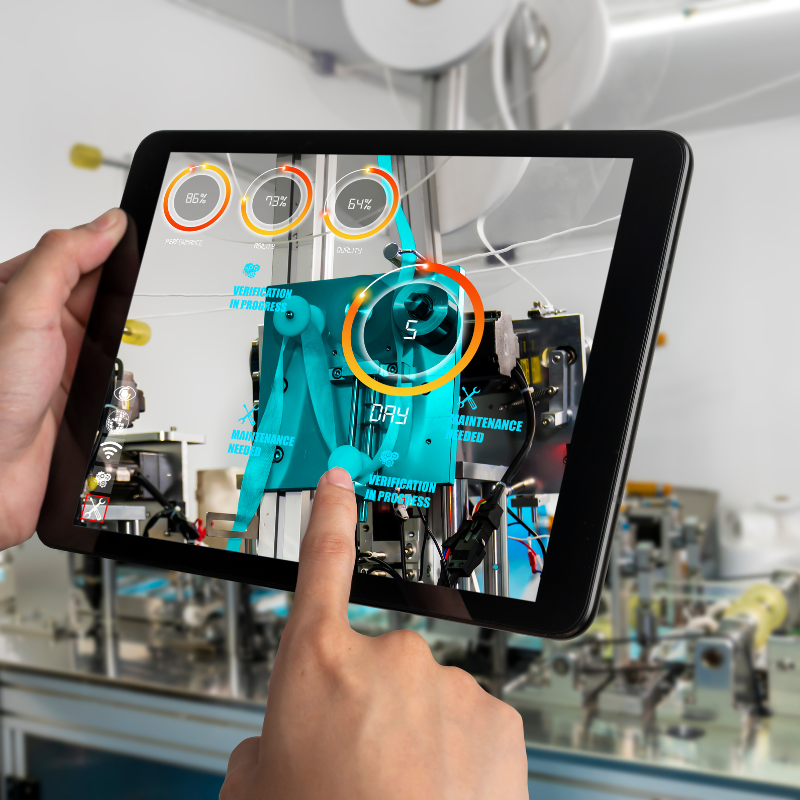Digital transformation has revolutionized manufacturing, enabling organizations to improve efficiency, reduce costs, and remain competitive in an ever-evolving market. However, transitioning to smart factories and data-driven operations isn’t without challenges. While the benefits are compelling, manufacturers must navigate several obstacles to implement digital transformation strategies successfully.
This blog explores key challenges manufacturers face during digital transformation and strategies to overcome them.
Cultural Resistance to Change
One of the most significant hurdles in digital transformation is the need for employees to embrace change. Traditional manufacturing environments often rely on established processes, and introducing disruptive technologies can lead to apprehension among workers and management.
Solution:
- Leadership Advocacy: A strong leadership team must actively promote the benefits of digital transformation.
- Employee Training: Upskilling workers to use new technologies fosters confidence and reduces resistance.
- Inclusive Planning: Engage employees early in decision-making to ensure they feel valued and part of the change.
Integration of Legacy Systems
Manufacturers often operate with outdated legacy systems that are incompatible with modern digital tools. This creates barriers to integrating IoT devices, advanced analytics, and cloud-based platforms.
Solution:
- Incremental Integration: Start with low-risk areas to test new solutions and gradually expand.
- Middleware Solutions: Use middleware to connect legacy systems with modern technology without complete overhauls.
- Long-Term Roadmaps: Develop a phased strategy for upgrading systems over time.
Data Overload and Management
Digital transformation introduces data from sensors, machines, and software applications. With proper management, manufacturers may be able to extract meaningful insights.
Solution:
- Centralized Data Platforms: Implement systems that aggregate and analyze data, such as Manufacturing Execution Systems (MES) or Enterprise Resource Planning (ERP).
- Focus on Actionable Insights: Prioritize data that aligns with operational goals.
- Adopt Predictive Analytics: Use AI-driven tools to turn raw data into actionable forecasts.
Cybersecurity Risks
The integration of connected devices and cloud-based solutions increases the risk of cyberattacks. Inadequate security can result in data breaches, production downtime, and loss of intellectual property.
Solution:
- Robust Security Frameworks: Employ firewalls, encryption, and intrusion detection systems.
- Regular Audits: Conduct routine cybersecurity assessments to identify vulnerabilities.
- Employee Awareness: Train staff on recognizing and responding to potential threats.
High Initial Costs
Adopting advanced manufacturing technologies like IoT, robotics, and AI often involves substantial upfront investments. Many manufacturers need a guaranteed ROI.
Solution:
- Prioritize High-Impact Areas: Focus investments on areas where digital tools can yield immediate improvements.
- Leverage Government Incentives: Explore grants or subsidies available for industrial digitization.
- Start Small: Implement pilot projects to test the viability and benefits of new technologies before full-scale adoption.
Skills Gap
Digital transformation demands a workforce equipped with data analysis, machine learning, and system integration skills. Unfortunately, finding and retaining talent with these skills is a growing challenge.
Solution:
- Continuous Learning Programs: Partner with institutions to provide on-the-job training.
- Collaborate with Tech Providers: Leverage vendor expertise to upskill teams.
- Automation for Repetitive Tasks: Use automation to reduce the dependency on specialized skills for routine operations.
Uncertain ROI and Business Outcomes
Many manufacturers hesitate to invest in digital transformation due to unclear return on investment (ROI). Measuring the success of initiatives can be complex, particularly in the early stages.
Solution:
- Define KPIs Early: Identify key performance indicators (KPIs) to track progress and outcomes.
- Measure Incremental Gains: Evaluate benefits in stages rather than waiting for full-scale implementation.
- Leverage Case Studies: Learn from peers who successfully implement digital transformation strategies.
Revolutionize Manufacturing with Factana
At Factana, we understand that digital transformation in manufacturing isn’t just about adopting new technology—it’s about driving real operational change that improves efficiency, reduces costs, and enhances productivity. Our expertise lies in enabling manufacturers to seamlessly transition into Industry 4.0 with scalable, intelligent, and cost-effective solutions.
Here’s How Factana Can Empower Your Digital Transformation Journey:
Seamless Integration with Legacy Systems
We specialize in bridging the gap between your existing infrastructure and modern digital tools. Our solutions ensure a smooth integration of IoT devices, cloud platforms, and advanced analytics, allowing you to retain the value of your current systems while unlocking new potential.
IoT-Powered Smart Manufacturing
Our IoT solutions enable real-time monitoring of machines, equipment, and processes. Gain actionable insights into your operations, minimize downtime, and enhance decision-making with Factana’s cutting-edge technologies.
AI-Driven Predictive Maintenance
Don’t just react to issues—predict and prevent them. Factana leverages AI to analyze machine data and predict failures before they occur, improving asset reliability and reducing maintenance costs.
Secure and Scalable Platforms
Factana’s robust security frameworks and scalable cloud solutions ensure that your digital transformation is not only efficient but also secure. Protect your data and intellectual property while growing your operations with confidence.
Cost-Effective Implementation
We understand that digital transformation requires a balanced approach to investment. Factana offers modular and customizable solutions, allowing you to start small and scale as needed, ensuring measurable ROI at every step.
Empowering Workforce with Smart Tools
Factana’s intuitive platforms are designed to simplify complex operations, making it easier for your teams to adapt. Our training and support programs help upskill your workforce to thrive in a digitally connected environment.
Partner with Factana to unlock the full potential of digital transformation. Together, we’ll turn your manufacturing challenges into opportunities for growth and innovation.
Conclusion
While the journey toward digital transformation in manufacturing is fraught with challenges, the rewards far outweigh the obstacles. By addressing resistance to change, integrating legacy systems, securing data, and investing in skill development, manufacturers can create a robust foundation for success.
Adopting a clear roadmap and leveraging incremental improvements will allow manufacturers to evolve into resilient, data-driven enterprises prepared for future market demands.
Are you ready to overcome these challenges? Embrace digital transformation to unlock your manufacturing potential and gain a competitive edge!

